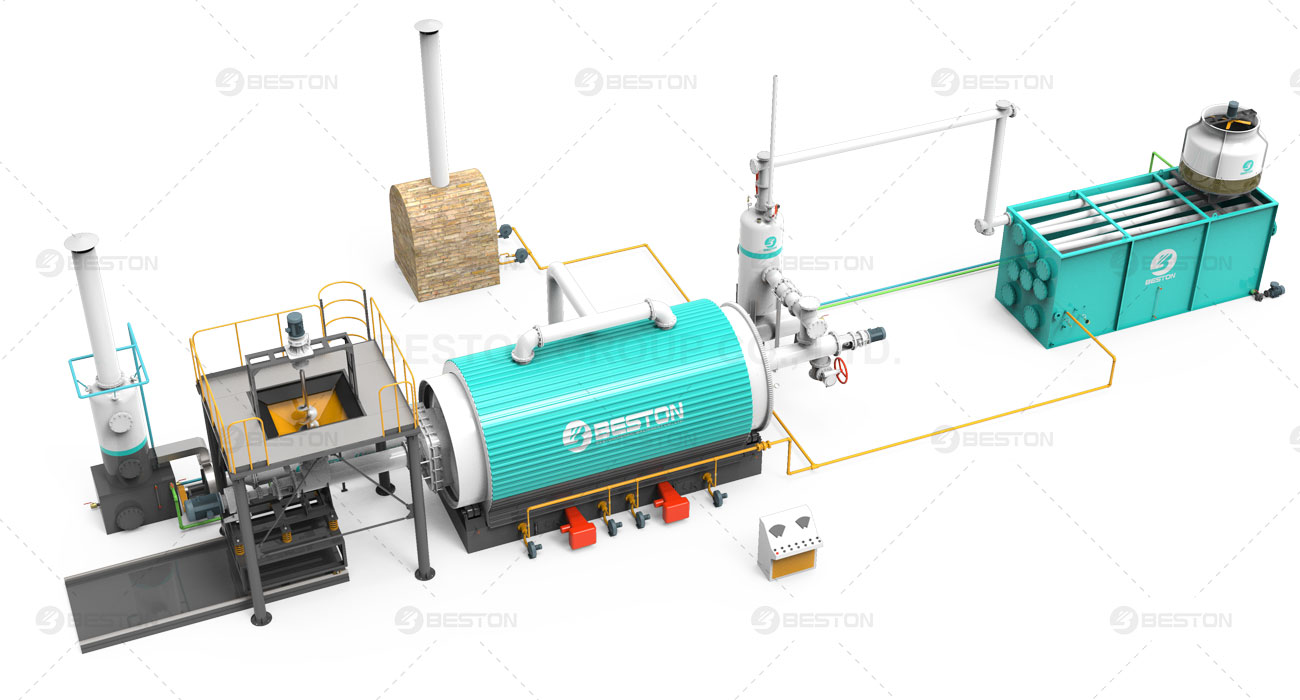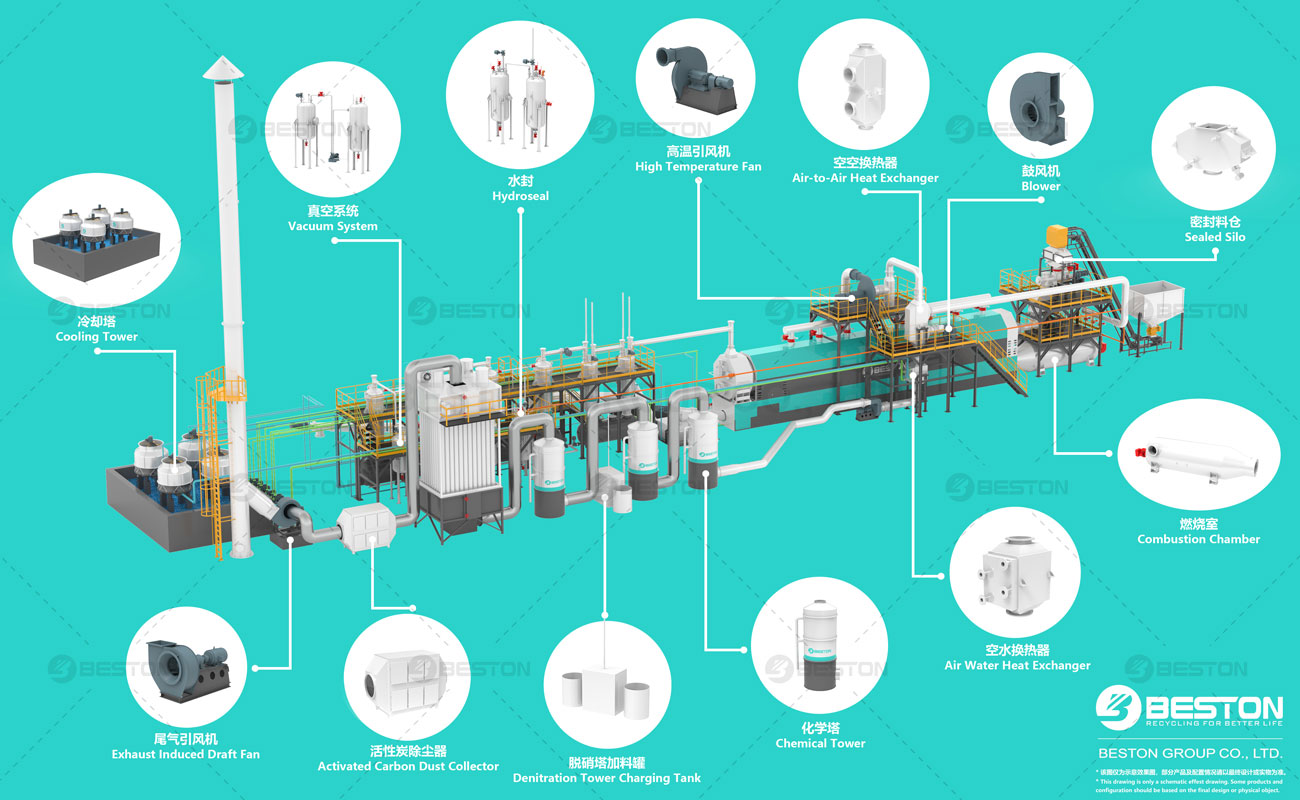The petrochemical industry plays a vital role in modern society, providing a wide range of products essential to our daily lives, from plastics to fuels. At the heart of this industry lies a complex process known as pyrolysis, which is facilitated by pyrolysis plant.
Pyrolysis: A Fundamental Process
A pyrolysis plant is a machine utilized in the petrochemical industry for the purpose of transforming larger hydrocarbon molecules into smaller and more valuable ones through a chemical process. It is a fundamental step in refining crude oil and turning it into a diverse range of products, including gasoline, diesel, jet fuel, plastics, and chemicals.
The two primary methods of pyrolysis are:
- Thermal Pyrolysis: Involves the application of high temperatures (typically above 450°C) to break hydrocarbons into smaller fragments. This process is essential for producing lighter hydrocarbons like gasoline and diesel.
- Catalytic Pyrolysis: Utilizes catalysts to facilitate the pyrolysis process at lower temperatures (around 450°C). It is commonly used to produce high-value products such as petrochemical feedstocks.
The Importance of Pyrolysis Plant
Pyrolysis equipment, which includes pyrolysis furnaces and reactors, is the backbone of the petrochemical industry. These specialized units are designed to create the optimal conditions for the pyrolysis process, ensuring the efficiency and quality of the products derived. Here’s why pyrolysis equipment is indispensable:

- Product Diversification
Tyre/ Plastic pyrolysis plant enables refineries to produce a wide variety of valuable products from crude oil. Without it, the petrochemical industry would be limited to heavy, less valuable hydrocarbons, resulting in a significant loss of revenue and versatility.
- Fuel Production
One of the most critical applications of pyrolysis equipment is the production of transportation fuels such as gasoline and diesel. Thermal pyrolysis, in particular, is used to convert heavy crude oil fractions into lighter, more valuable fuels that power cars, trucks, and airplanes worldwide.
- Petrochemical Feedstocks
Catalytic pyrolysis equipment plays a crucial role in producing petrochemical feedstocks. These feedstocks are the building blocks for manufacturing plastics, synthetic rubber, and other essential products for various industries. Without catalytic pyrolysis, the production of these materials would be severely limited.
- Environmental Impact
Pyrolysis processes in modern equipment are designed to minimize environmental impacts. Catalytic pyrolysis, for example, reduces emissions of pollutants and greenhouse gases, making the industry more sustainable and environmentally responsible.
- Energy Efficiency
Mobile pyrolysis unit contributes to the overall energy efficiency of petrochemical refineries. By breaking down heavy hydrocarbons into lighter fractions, these units improve the yield of valuable products while reducing the energy required for processing.

Recent Advances in Pyrolysis Equipment
The petrochemical industry continually invests in research and development to improve pyrolysis equipment. Recent advances include:
- Advanced Catalysts: Innovations in catalyst technology have led to more efficient and selective pyrolysis processes, resulting in higher yields of desired products.
- Reactor Design: New reactor designs optimize heat and mass transfer, increasing the overall efficiency of the pyrolysis process.
- Integration with Renewable Sources: Some pyrolysis equipment can now be integrated with renewable feedstocks, offering the potential for sustainable hydrocarbon production.
- Emission Reduction Technologies: The industry is actively developing technologies to reduce emissions from pyrolysis equipment, contributing to a greener petrochemical sector.
You can contact Beston Group for more information. It’s our pleasure to answer any questions you may have.